Introduction: A President Who Redefined Conservatism
Ronald Reagan, the 40th President of the United States, is one of the most influential figures in modern American history. Known as “The Great Communicator,” Reagan’s leadership style, charisma, and strong conservative values helped reshape the American political landscape in the 1980s. His presidency marked a turning point in U.S. history, steering the country toward a new economic philosophy, strengthening its global presence, and restoring national pride after a tumultuous period in the 1970s.
From his days as a Hollywood actor to his two-term presidency, Reagan built a legacy centered around optimism, strength, and traditional values. He is credited with reviving the American economy through “Reaganomics,” taking a hard stance against the Soviet Union, and inspiring a generation of conservatives. To his supporters, Reagan was a transformative leader; to his critics, a polarizing figure whose policies increased inequality. Yet few can deny his lasting impact on America’s political, economic, and cultural identity.
This article explores the life, presidency, and legacy of Ronald Reagan. It covers his early years, rise to political power, key policies, foreign affairs achievements, and enduring influence. Whether you admire or question his methods, Reagan’s story is essential to understanding the course of U.S. history in the late 20th century.
Early Life and Hollywood Career
Ronald Wilson Reagan was born on February 6, 1911, in Tampico, Illinois. Raised in a modest home by his mother Nelle and father Jack, Reagan learned the importance of faith, optimism, and perseverance at a young age. He grew up during the Great Depression, which shaped his strong belief in individualism and the American Dream. Reagan attended Eureka College, where he studied economics and sociology and developed an early interest in public speaking and performance.
After graduating, Reagan pursued a career in radio broadcasting before moving to Hollywood in the late 1930s. He found steady success in the film industry, appearing in over 50 movies throughout his acting career. His role as George Gipp in “Knute Rockne, All American” earned him the lifelong nickname “The Gipper.” Reagan also served as president of the Screen Actors Guild, where he gained leadership experience and became involved in labor disputes and anti-Communist efforts during the McCarthy era.
Reagan’s time in Hollywood significantly influenced his communication skills and public persona. His on-screen charisma translated into real-life appeal, which would later serve him well in politics. During this period, Reagan’s political views shifted from liberal Democrat to conservative Republican, a transformation that paralleled his growing concerns about government overreach and Communism. His Hollywood experience laid the foundation for his unique approach to politics and public engagement.
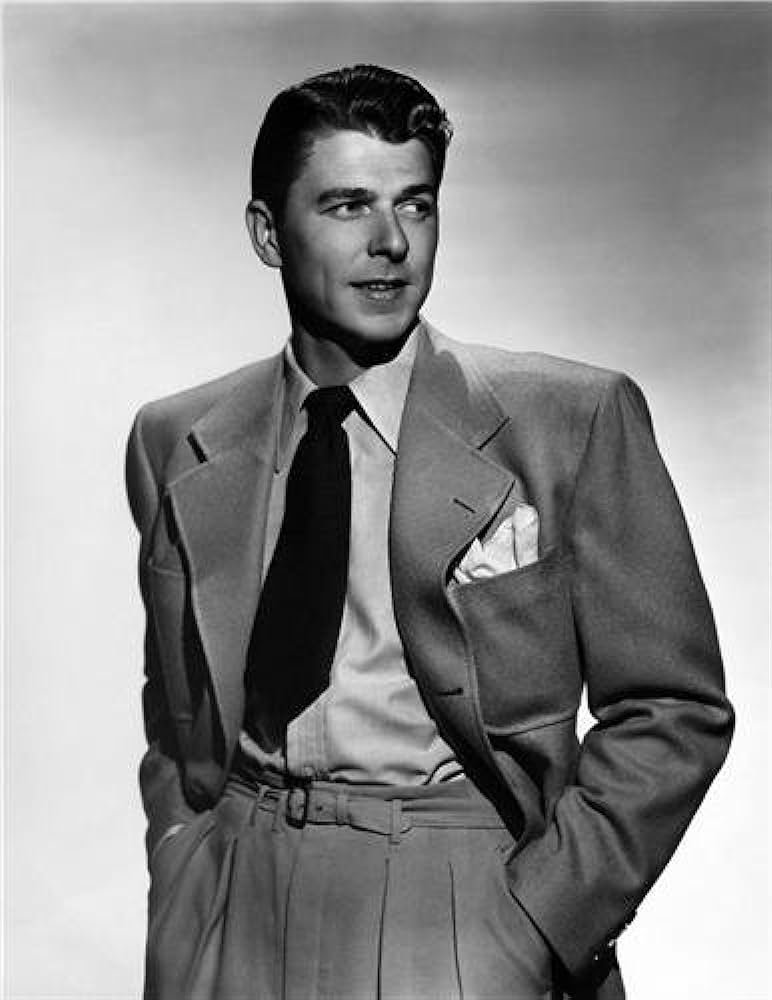
Entry into Politics and Rise as California Governor
Ronald Reagan officially entered the political arena in the early 1960s, publicly endorsing Republican candidates and speaking out against big government. His 1964 televised speech “A Time for Choosing,” delivered in support of Barry Goldwater’s presidential campaign, catapulted him into the national spotlight. The speech highlighted Reagan’s powerful oratory, personal conviction, and ability to connect with everyday Americans. Though Goldwater lost, Reagan had found his political voice and gained a significant following.
In 1966, Reagan ran for governor of California and won by a wide margin. His platform focused on reducing government spending, cutting taxes, and restoring law and order—issues that resonated with a growing conservative base. As governor, he implemented welfare reform, dealt with student protests, and maintained a budget surplus. Though not without controversy, Reagan’s time as governor established his reputation as a capable and determined conservative leader.
Reagan’s gubernatorial success positioned him as a serious contender for national office. He ran for president in 1976 but lost the Republican nomination to Gerald Ford. However, the campaign further solidified his national support. By 1980, with the country facing inflation, unemployment, and the Iran hostage crisis, Reagan’s message of strength, patriotism, and free-market solutions won the hearts of many Americans. He defeated incumbent President Jimmy Carter in a landslide victory, marking the beginning of a new conservative era.
Reaganomics and Economic Transformation
One of Ronald Reagan’s most lasting domestic legacies is his economic policy, famously known as “Reaganomics.” Centered around four key principles—reduction of government spending, tax cuts, deregulation, and controlling inflation—Reaganomics aimed to boost economic growth by empowering the private sector. His administration passed the Economic Recovery Tax Act of 1981, which significantly lowered income tax rates and corporate taxes.
Supporters argue that Reagan’s policies revived the stagnant economy of the 1970s. During his presidency, inflation dropped, unemployment eventually fell, and GDP growth returned. The stock market soared, and consumer confidence rebounded. Reagan’s belief in “trickle-down economics”—the idea that tax benefits for the wealthy and businesses would eventually benefit all citizens—became a cornerstone of modern conservative economic thought.
Critics, however, point out that Reaganomics also contributed to increased national debt, reduced funding for social programs, and growing income inequality. The budget deficit expanded dramatically during his presidency due to high military spending and tax cuts. While the overall economy improved, many low-income Americans did not see the same benefits. Nonetheless, Reagan’s economic vision reshaped U.S. fiscal policy and continues to influence debates today.
Foreign Policy and the Cold War Victory
Ronald Reagan’s foreign policy was defined by a strong anti-Communist stance and a commitment to military strength. He viewed the Soviet Union as the greatest threat to freedom and referred to it as the “Evil Empire.” Under his leadership, the U.S. significantly increased defense spending, including the development of new weapons systems and the Strategic Defense Initiative (SDI), a proposed missile defense system nicknamed “Star Wars.”
Reagan also pursued a policy of peace through strength, combining military pressure with diplomatic efforts. He supported anti-Communist movements around the world, including in Afghanistan, Nicaragua, and Grenada. While some criticized these interventions, Reagan believed they were essential to containing Soviet influence and defending democracy globally. His foreign policy aimed not just to resist Communism but to roll it back.
Perhaps the most memorable moment of Reagan’s foreign policy came in 1987 when he stood before the Brandenburg Gate in Berlin and famously declared, “Mr. Gorbachev, tear down this wall!” His relationship with Soviet leader Mikhail Gorbachev evolved from confrontation to cooperation, culminating in the signing of the INF Treaty in 1987, which eliminated an entire class of nuclear weapons. By the time Reagan left office, the Cold War was coming to an end, and his role in that shift remains a central part of his legacy.
Communication Style and Public Image
Ronald Reagan’s ability to connect with the American people earned him the nickname “The Great Communicator.” His background in film and radio gave him a natural stage presence, but it was his authenticity, humor, and optimism that truly resonated. Reagan had a unique ability to simplify complex issues and present them in relatable terms. His speeches were filled with memorable quotes, inspiring imagery, and a tone of calm leadership during uncertain times.
Whether addressing the nation during the Challenger disaster or delivering his State of the Union addresses, Reagan’s communication style built trust and unity. He was especially effective on television, where his warmth and charisma set him apart from other politicians. Even when facing criticism, Reagan often disarmed his opponents with charm and clever wit, making him one of the most popular presidents in modern history.
Reagan’s public image was carefully managed but largely authentic. He embodied traditional American values like hard work, patriotism, and faith. Though he faced criticism on various fronts, his likability and steady demeanor allowed him to maintain strong approval ratings. Reagan’s communication legacy influenced not only politics but also how candidates campaign and interact with voters to this day.
Post-Presidency and Lasting Legacy
After leaving office in 1989, Ronald Reagan retired to his California ranch with his wife Nancy. He remained active in public life, giving speeches and promoting the values he championed during his presidency. In 1994, Reagan publicly announced that he had been diagnosed with Alzheimer’s disease, a move that brought national attention to the condition and helped reduce its stigma. He passed away on June 5, 2004, at the age of 93.
Reagan’s funeral was a national event, attended by world leaders and Americans from all walks of life. He was remembered as a man of principle, a defender of freedom, and a symbol of American optimism. Institutions, airports, highways, and schools have been named in his honor. The Ronald Reagan Presidential Library in Simi Valley, California, serves as a monument to his life and achievements, drawing thousands of visitors each year.
Reagan’s legacy continues to influence U.S. politics. Many Republican leaders cite him as a role model, and his ideals—limited government, strong national defense, and free-market capitalism—remain central to conservative thought. Whether admired or debated, Ronald Reagan’s impact on America is undeniable. His story is one of transformation, resilience, and a deep belief in the potential of the American people.
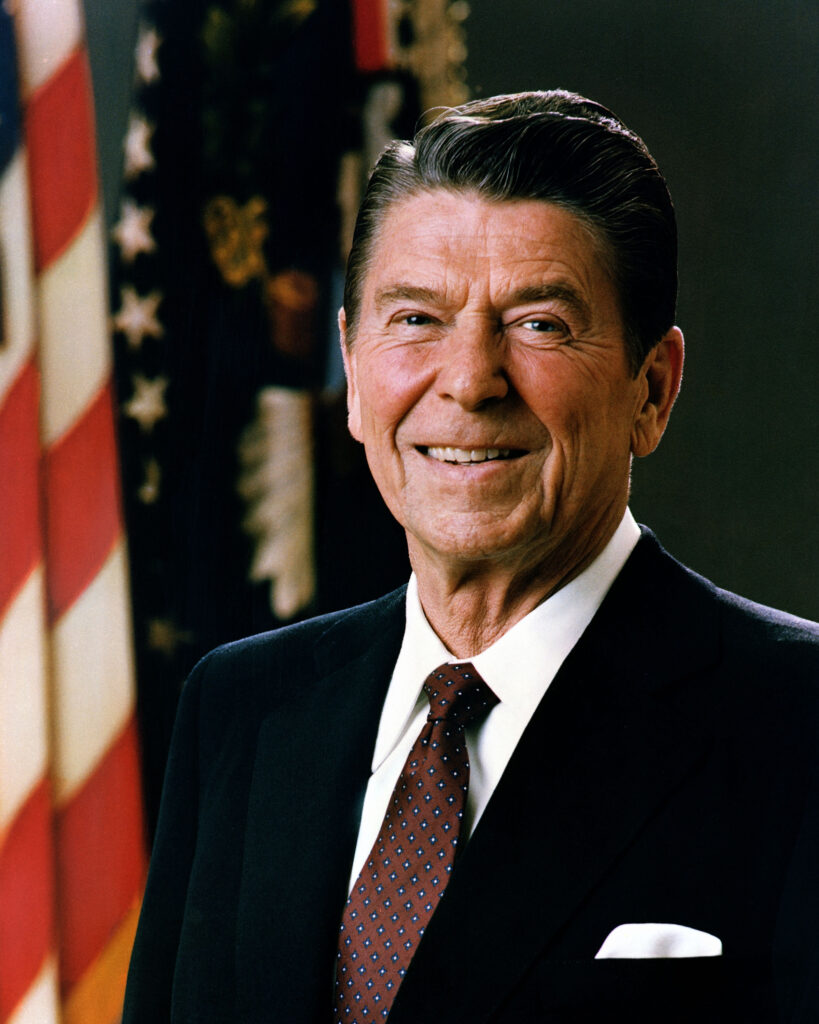
Conclusion: The Lasting Impact of Ronald Reagan
Ronald Reagan’s journey from small-town Illinois to the White House is a classic American success story. He reshaped the Republican Party, revived American confidence during a time of crisis, and played a pivotal role in ending the Cold War. Reagan believed in the greatness of America and dedicated his life to defending its values both at home and abroad.
His policies, leadership style, and optimistic vision continue to spark debate and admiration. While not without controversy, Reagan’s presidency is seen by many as a time of renewal, growth, and strong national identity. He taught Americans to believe in themselves and their country again, leaving a mark that transcends party lines and generations.
In today’s divided political climate, Reagan’s legacy offers lessons in communication, conviction, and the power of principled leadership. He was not just a president—he was a symbol of a hopeful era in American history. Ronald Reagan’s name remains etched in the story of the United States, a reminder of how one person’s vision can shape a nation’s destiny.

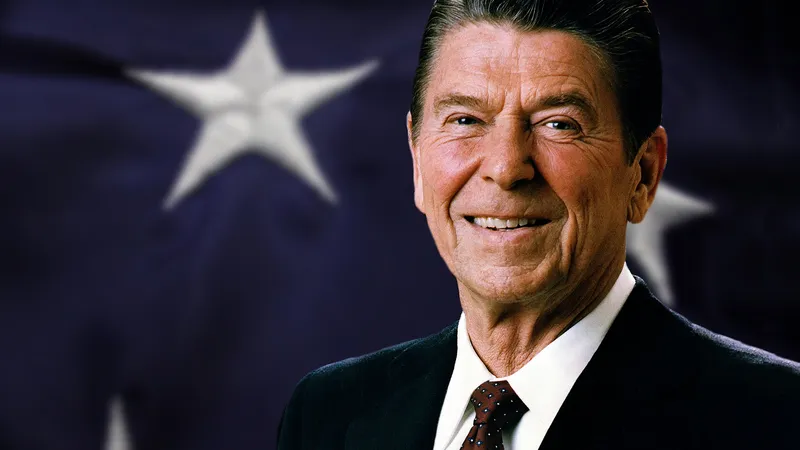
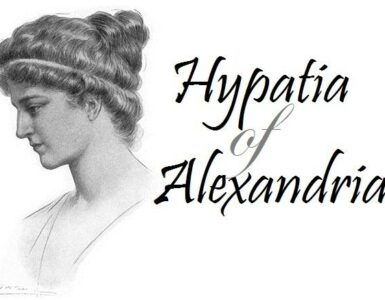
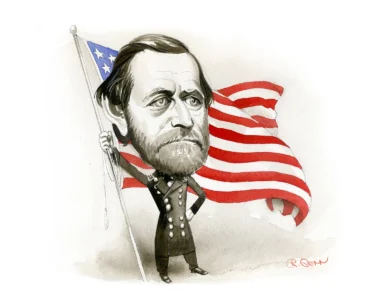
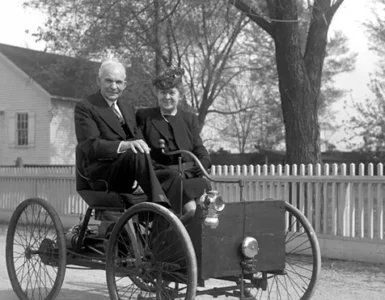
Add comment